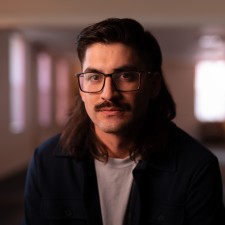
“Through recovery, I've been able to reconnect with culture and find my identity.”
“Connection has been essential in my recovery, as well as everyone else's,” says Remy. “Without it, it's not possible. We rely on others for help and for guidance in recovery. It's not a path that's walked alone.”
For a long time, that kind of connection was missing from Remy’s life. “My mom was part of the 60s Scoop,” Remy says. “She was taken away from her family. And so, I didn't grow up in my own culture, and neither did my mother. I really didn't know who I was, or I felt like there was a piece missing of me. Through recovery, I've been able to reconnect with culture and find my identity, and find out who I am and what it truly means to be an Indigenous person.”
“Cultural teachings have a lot of similarities to the teachings in recovery,” Remy reflects. “Connectedness and oneness, giving and being of service. Taking care of one another. Speaking with Elders, there's always these coincidences where it's like, ‘oh, I heard that in treatment.’ And it's just the wisdom of an Elder. It's been a really special journey to be able to get to know my culture and participate in it. If I was in active addiction, I would never be able to participate in culture like I can now. And that's just one of the beautiful gifts of being in recovery.”
“I didn't really think I stood a chance. And I didn't even feel like I deserved to live a better life. Then I got into recovery and had a couple months sober, and I was feeling really good, and I was like, alright, I get the second chance at life. And I didn't really know why--it didn't make sense. I still felt like I didn't deserve that. And I was like kind of like, alright, what's the point of all this? Why am I alive?”
One answer came from a happy phone call. “My sister Emily supported me through thick and thin, and she was super crucial in my recovery. When I was in treatment, I found out she was pregnant with her firstborn. I remember just pouring tears of joy. And soon as I was off the phone, I went and told everybody that I was there with. It was so exciting. And I remember feeling so grateful that I would be able to be there for her and her firstborn.”
Passing on that connection to the next generation is important to Remy. “My nephews won't ever have to see me in addiction. That cycle ends with me. Emily’s children are going to have every opportunity in their lives. And one day, when I have children, they're going to have every opportunity. They won't have to go through the things I went through. They're going to know their culture. They're going to know their ancestry. They're going to know who they are. I’m going to make sure they're connected and they don't have to see violence or abuse or drug use. That's super special to me, because it kind of all started with my story.”